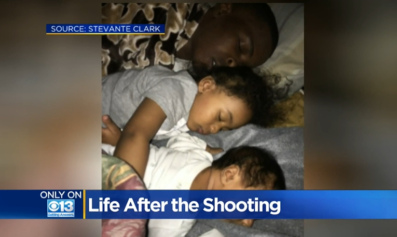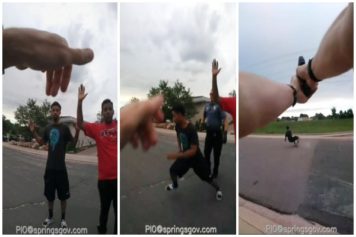
Police officer Canyon Boykin was fired after he shot and killed Ricky Ball, pictured here.
A white Mississippi police officer has filed a federal lawsuit, claiming he was fired for shooting a Black man.
According to The Guardian, Canyon Boykin, a Columbus, Mississippi police officer, said he was terminated because he was white, and the man he shot, Ricky Ball, was Black. Ball was killed in October 2015 after he was stopped by police for a faulty tag light. According to police reports, a foot chase ensued which led to Ball’s death.
Boykin alleges his 14th amendment rights were violated. His lawsuit also claims the city did not follow due process during the termination, which has caused him “lost income and mental anxiety and stress.”
However, according to The Associated Press, city officials fired Boykin because he didn’t turn on his body camera, made offensive racial comments on social media and took his then-girlfriend on an unapproved ride along in a patrol car.
Boykin’s lawsuit claims that he is not racist.
“Plaintiff’s lack of prejudice against black persons is established through an earlier incident in which Plaintiff, along with Officer Johnny Max Branch, dove into a freezing lake and saved a black criminal suspect from drowning,” said the lawsuit.
Columbus city attorney Jeff Turnage said Boykin failed to turn on his body camera when he shot Ball. Boykin’s lawsuit may mark a disturbing new trend. As cities crack down on white police officers shooting and killing Black citizens, police officers are fighting back by claiming racial discrimination when they are terminated.
However, there are some discrepancies in the police report. The Columbus Police Department put out two reports about the Ball shooting. The first one said Boykin used a stun gun on Ball. The second report contains no mention of the stun gun. The police report also claims Ball was in possession of a gun stolen from a police officer’s house. However, the theft was reported after Ball’s death, several months after the incident was alleged to have occurred.
Philip Broadhead, director of the criminal appeals clinic at the University of Mississippi, said the contradicting statements in the reports cast doubts on Columbus police.
“One of these two reports is not true,” Broadhead told The Guardian. “For police officers to offer up this type of information in the form of an incident report as sworn law officers. It’s a violation of their oath.”


